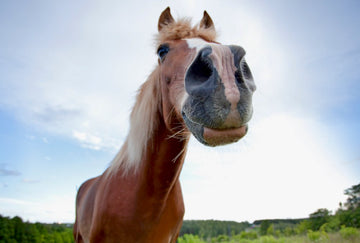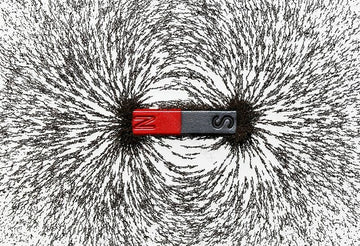The Effect of Wind On The Horse’s Vision
Horses are more excited on windy days because they see movement all around them. Things that are normally still are now moving and perceived as a threat.
- The wind causes the physical environment to move by blowing objects such as leaves, bushes, debris, etc. This reduces the contrast of a moving predator within a motionless environment. Making it more difficult for the horse to spot the predator, thus stressing him.
- The wind blows objects in the air that can suddenly appear in the sight of the horse and frighten him
The Horse’s Hearing
A horse’s hearing is more acute than ours. They can hear within a larger frequency range than we can. Their frequency range is from 14hZ to 25 kHz, while the human range is 20 Hz to 20kHz
Their ears move 180 degrees, and they can focus on a single area to listen to. This allows the horse to identify where the sound is coming from.

The Effect of Wind On The Horse’s Hearing
Horses are more stressed and spook on windy days because they hear many different sounds and cannot identify predators.
- The sound of wind masks other sounds in the environment, which stresses the horse because it cannot clearly hear predators
- The wind also creates additional sounds made by objects blowing in the wind, such as leaves, debris, etc. This can frighten the horse because it may perceive these sounds as being a predator.
The Horse’s Smell
As prey animals, horses have the ability to detect even the slightest scent of danger. They can also detect the “smell of fear” in other animals (which emanate chemical signals that we cannot detect).
Additionally, horses can clearly identify the direction from which the smell is coming. This is possible because of how the brain and smell receptors in the nostrils are structured

The Effect of Wind On The Horse’s Smell
Windy conditions affect the horse´s smell in the following way:
- High-speed wind carries the smell of other animals in all directions and affects the horse’s ability to detect the location of predators through smell. The disruption of smell increases with the speed of the wind. While no wind fails to disperse scent at all, a high wind speed dilutes it very quickly.






